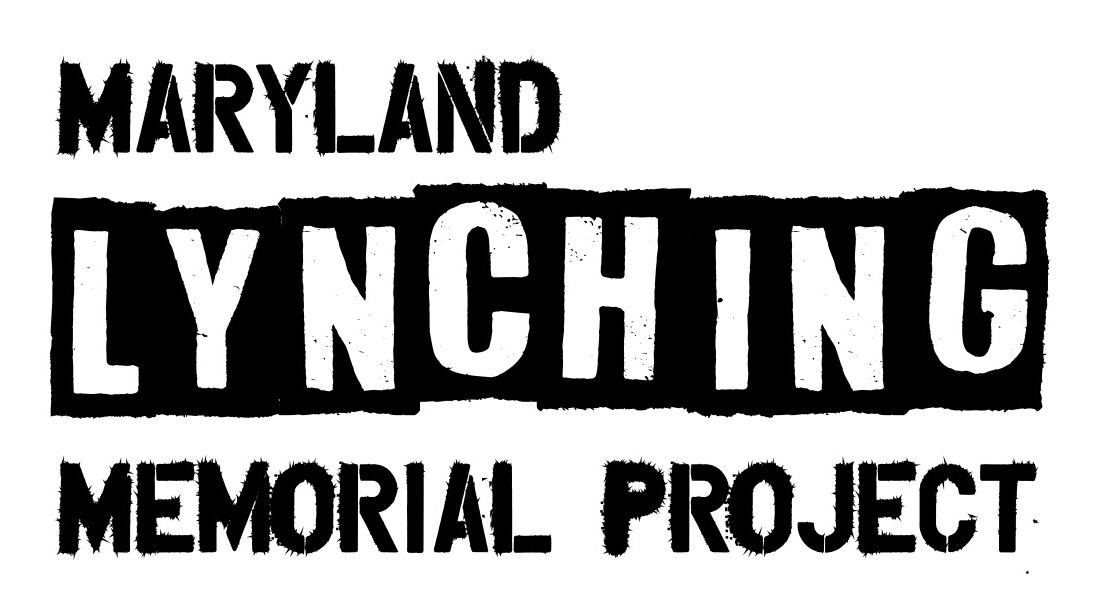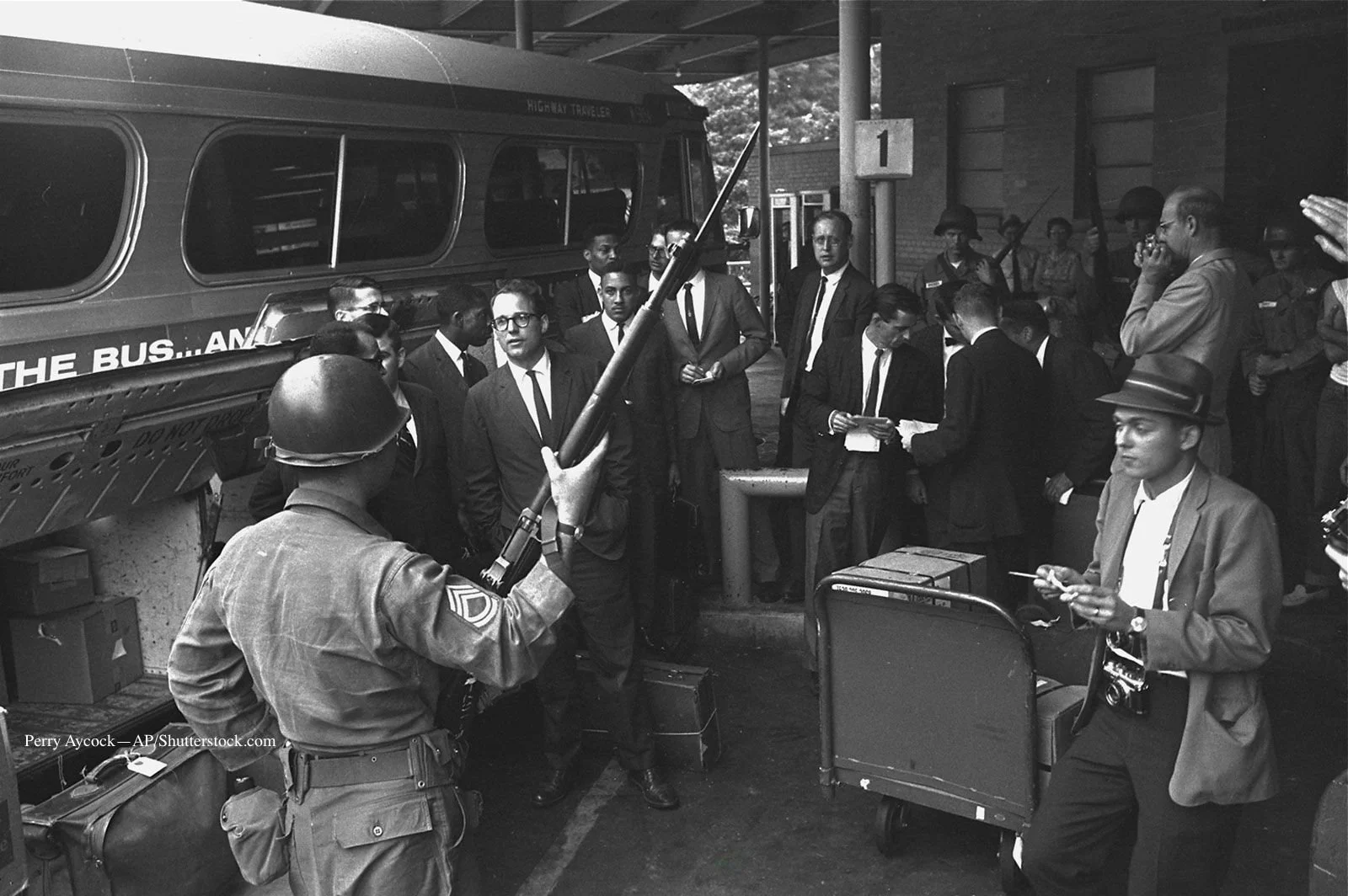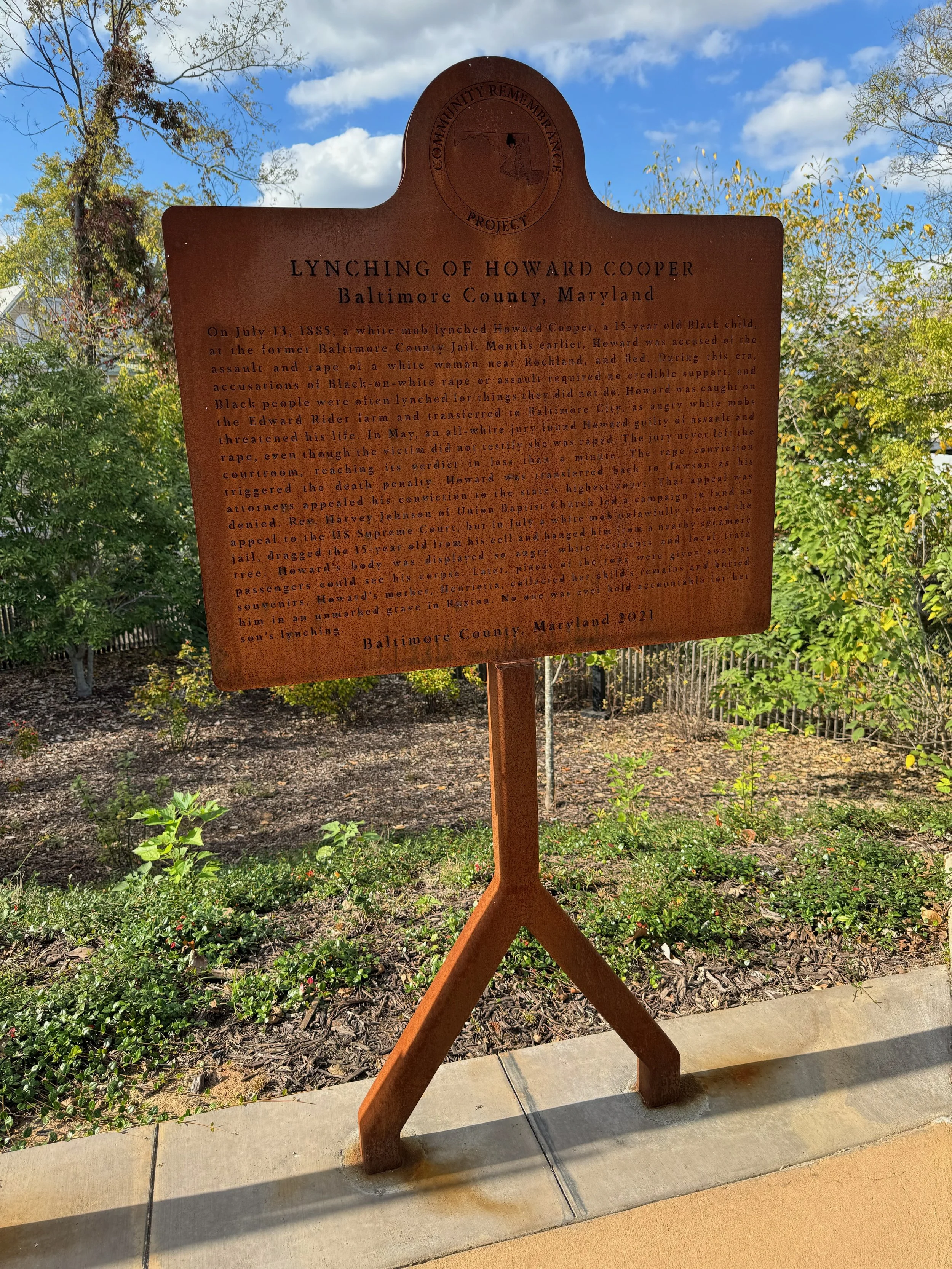Reflections from Saturday, October 28
/Our morning began at the Co-Lab Collective with the documentary “Lynching Postcards: Token of a Great Day" and a conversation around lynching with Dr. David Domke and Dr. Terry Scott. The conversation highlighted the powerful work that Dr. Scott has done in bringing forward the horrors of lynching and the great undertaking of research that led her to being identified as an expert on the subject. Dr. David's thoughtful questions helped us delve into the personal connections that Dr. Terry has to her work and the beautiful process she undertook to bring this dark history to light. The documentary was incredibly difficult to watch, but for different reasons for me. As a Black woman, as a dark-skinned Black woman, I walk through the world very differently than the majority of the people that I sat with in the room. As I watched the documentary, I had to focus on my breathing because I was watching bodies that looked just like mine lose theirs permanently. With an audience. An audience of faces that looked just like those in the room with me. That was a compounding experience. I thought of their last thoughts. I thought of their quests for friendly faces or kind eyes in a sea of hatred that they did not deserve. In one of the lynching photos, I saw a Black man in the crowd and even wondered what that experience had to be for him. I thought of how likely it was that he had no choice in the matter of his being there. I wondered what his thoughts were. How that had to be a lesson to him from someone there to always know his place. To always remember that one wrong move can have him be in a different position the next time. Or one right move even…right for someone else. I constantly think of the lack of agency that Black people had especially then, where our movements were not our own. I was also intentional in following my breathing because I constantly stare my mortality in the face, and seeing the images of lynching and hearing the narrations of what led to them is no different than what we experience today. Dr. Scott talked about the lynching of Elijah McClain and it took everything in me not to sob in that moment. She talked about how his final words were uttered in grace which nearly broke me. It tends to be the way my people live as a people where even when staring hatred in the face as it is killing us, we still extend love, grace and compassion. It scares me how many have done that in the belief that it would end with them and that the next person would experience something better…yet, here we are. The documentary talked about how a photograph from a lynching extends the life of an event. That made me think about how it also extends the death of Black bodies. As I said, I constantly stare my mortality in the face, and every single lynching photo represents that. It’s a reminder to know that my body is not safe because this country has not yet dealt with this horror.
I have been to the Legacy Museum twice in the past, and even then you can never be fully prepared for what you will experience. The museum is so perfectly put together in honoring the truth of our history as a country and the parallels between our past and our present. I stared into faces that looked just like mine. Hearing the sounds of waters all around me felt eerily familiar, as if I know what those before me felt when they heard those sounds. I always wonder if my fear of water stems from some generational connection to knowing that my ancestors are in the bottoms of many bodies of water that stole them from our homes setting out to rob them of the livelihoods that they had once held dearly. As I made my way through the various beautifully constructed exhibits, I came across a quote from Charleston residents in 1769. They talked to their governor about the large number of Black people thrown into the river and there being a smell. They talked about how that smell may become dangerous to the health of those who live in the province. It wasn’t explicit, but it was seemingly obvious that it was white people complaining about the smell that the bodies their own community members had been dumping in the water had begun to produce as a result of their brutal murders. It was wild to wrap my head around that. They were essentially calling out their racism as a public health issue but not caring to do anything about stopping it. Reading the narratives of enslaved people putting notices in church bulletins and other publications was difficult. There was a quote where someone said that they hoped their mother would come back after being sold and that other enslaved people would fill them with hope saying she would when they knew in their heart of hearts that she would not. That was a challenge to read and conceptualize because I cannot fathom living in that kind of reality. I have never known a reality even remotely close to that and know that too many before me who look just like me did.
The Legacy Museum did a phenomenal job structuring the holistic narrative on the Black experience in America starting at the period of enslavement and leading up to our system of mass incarceration in present day. It’s a great learning tool for all that needs to be widespread. If I had my way, every school system would make a field trip to the Legacy Museum mandatory. I would even make every workplace create a trip like this for professional development because every industry has a responsibility to know our collective truth accurately. When I think of the ways that Equal Justice Initiative (EJI) is changing the world, I think of the affirmation of visibility. In the past, people who look like me were so often relegated to the periphery, to not be seen or heard. Founder and Executive Director Bryan Stevenson is challenging that by creating spaces that make us visible. Loudly.
Deksyos Damtew, project assistant at EJI, spoke with us regarding the work that they are doing in fighting the injustices of our system of mass incarceration by supporting our communities in learning truth and gaining access to resources that meet their most basic needs. We do ourselves a disservice as a society when our conversations around crime and punishment ignore the very real reality of many being pushed to crime as a result of circumstance. Now that is not to say that there are not real instances of crime, but to say that all crimes are not equal. The individual that lives in a food desert, falls subject to being overworked and underpaid finding it hard to make ends meet having to choose between prescription medication and dinner, turning to crime to have a bite of food to eat does not deserve a life sentence in prison. We were reminded yet again that the state of Alabama does not have a public defense system which leaves those within our marginalized communities without the resources to afford adequate defense in the court of law even more susceptible to harsh sentencing in prison due to not having opportunities to be defended. We learned about what EJI is doing to be hands-on in challenging our system of mass incarceration with their anti-poverty initiative and thinking about how food insecurity intersects with crime when hunger is an issue. We also learned about how they are tackling disparities in access to high quality medical care by creating a health clinic. Interventions can and do make a difference. EJI does work regarding re-entry, ensuring that our community members coming home have as smooth a transition back to normalcy as possible.
At Tuskegee University, we had the opportunity to share in spaces of power in the church on campus and the final resting places of Booker T. Washington and George Washington Carver. Mr. Charles Mauldin, student leader in the 1965 Civil Rights March, shared a number of insights with us on campus and talked about how instrumental Bayard Rustin was in the work that Dr. Martin Luther King Jr. did. We ended the evening sharing space with Dr. Bernard Lafayette and Mrs. Kate Lafayette and their nieces whose hospitality knew no bounds. Dr. Lafayette recounted several stories of how he was nearly lynched at the hands of racists determined to stop his fight for equality. It was powerful seeing Dr. Bernard and Mr. Mauldin reminisce on the experiences they shared during their quests to tackle injustice right here in Alabama over 50 years ago. Their passing of the mantle to us has us ready to pick up where they left off calling truth to power so that we may all be free.



